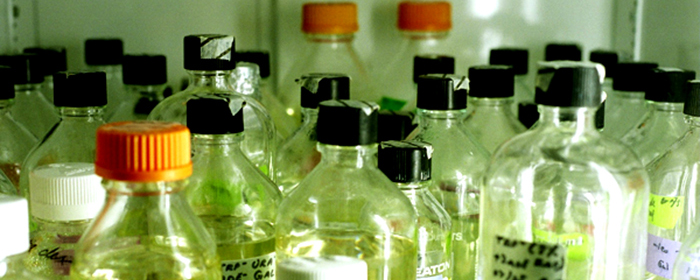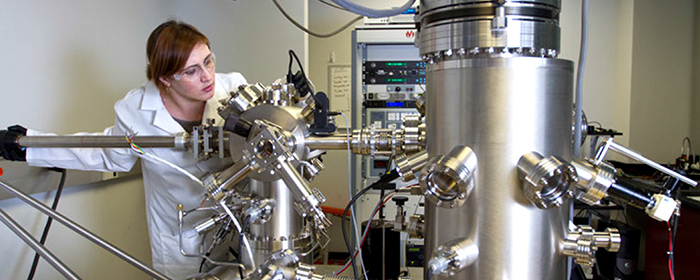Tips and Tricks for CNS Staff
Staff across our college are a wealth of information! That's why the CNS Staff Committee is gathering tips and tricks of all sorts from college staff and sharing them here.
Do you have a tip to share? Something that made your job easier or your day-to-day campus experience more enjoyable? Something you wish you had known all along? Send it to the CNSSC Traning and Wellness Group at CNSSC.TW@cns.utexas.edu.
Our greatest resource is one another!
TIps and tricks
Campus Tip: Getting Around Town
Did you know that UT students, faculty, and staff may ride Capital Metro MetroRail, as well as Mainline and MetroRapid buses for FREE, any day, any time! Just swipe your valid UT photo ID upon entering the bus or display it to the conductor when accessing the MetroRail. You can find more info here. Published 08/05/22.
Applications Tip: Using DocuSign with UT Box
Do you have to juggle DocuSign documents? Did you know that you can send to DocuSign directly from Box? If you have a document that needs a signature uploaded in Box, there is an option on the document through Box online to choose "Send through DocuSign". This option will allow you to connect to DocuSign, choose the recipient(s) and final destination of the signed doc, and send. Once the doc is signed, it will come back and land in the Box with the name of the file indicating it was DocuSigned. You can find detailed instructions here. If you have questions, check out our campus DocuSign support. Published 07/14/22.
Applications Tip: Funding Opportunity Database.
Looking for funds to finance your next project? Did you know that Pivot — a database of diverse funding opportunities — is available, free of charge, to all UT faculty, staff, and students? Create and save searches, and get alerts when a new funding opportunity arises. Published 05/12/2022.
Training Tip: Microsoft Teams Essential Training.
Has your group implemented Microsoft Teams as their primary communication tool? Feeling lost trying to navigate yet another, new collaboration app? Did you know that LinkedIn Learning offers a Microsoft Teams Essential Training class and that all UT staff have unlimited access to LinkedIn Learning? Go to LinkedIn Learning and sign in with your UT email address. You will automatically be re-routed to the UT login page. From there, just log in with your UT EID and password. Search for “Microsoft Teams Essential Training” and get started! While you’re there, check out some of the numerous other useful classes offered.Published 04/14/2022.
Equipment Tip: Free Assessment of Malfunctioning -80 Freezers.
Have a -80 freezer fail and don’t know whom to call? Did you know that ThermoFisher has a program to evaluate any brand of nonfunctioning or malfunctioning -80 freezer (and other types of chilling/heating devices), FREE OF CHARGE? They will come to campus, pick up the freezer, bring it to their local facility, and assess what repairs need to be made. If you decide not to repair the freezer, ThermoFisher will return it to campus at no charge. Alternatively, the user may pay to have ThermoFisher repair the freezer and then return it to their lab. [Note: In most cases, nonfunctional units will necessarily require at least some repairs in order to be properly assessed. Costs for such preliminary repairs will be established before any repairs are made.] Anyone interested in the service should contact the Repair Depot Group Leader, Chana Robbins (cell: 603-380-1911, office: 737-742-1158, email: chana.robbins@thermofisher.com). Published 02/28/2022.
Training
Laboratory Training Requirements
The University requires safety training for laboratory employees to insure that they are adequately informed about physical and health hazards present within the laboratory and methods for minimizing the risks of exposure. “Laboratory employees” include faculty, staff, and employed students who work in a laboratory setting. For this document the term “laboratory employees” applies as well to graduate and post-doctoral fellows and visiting scientists who work in laboratories. Required training is determined by job duties of the laboratory employee and the specific hazards within the lab.
Your Training History
You can verify what classes you have taken through TXClass (EID required) and choose “Training History.”
Required Training for all Laboratory Employees
- OH101 Hazard Communication (General) — Required for all lab employees working with or around hazardous chemicals.
- OH102 Hazard Communication (Site-Specific) — Taught by the laboratory's Principal Investigator or Lab Supervisor. The training must be documented using the standardized Lab Site-Specific HazCom training record with checklist covering training topics that is available from EHS. Required for all lab employees working with or around hazardous chemicals.
- OH201 Laboratory Safety — Required for all lab employees working with hazardous chemicals or biological materials.
- OH202 Hazardous Waste Management — Required for all employees, including faculty, staff, and students who work in a laboratory using hazardous chemicals or biological materials.
- OH 238 Laboratory Safety Refresher — Required initially for all lab employees working with hazardous chemicals or biological materials and every 3 years thereafter.
-
FF205 Fire Extinguisher Use — Required for all lab employees. See Fire Prevention Services for more information.
Additional Courses
To assist lab departments with maintaining training requirements, the university offers these additional courses:
-
OH 204 Compressed Gases — Compressed gas cylinders can be extremely hazardous when misused or abused. Compressed gas cylinders present a variety of hazards due to their pressure and/or content. This training provides information on how to safely handle and use compressed gases. This course is required for anyone who works with these cylinders.
-
OH207 Biological Safety — Required for all lab employees working with biological hazards, e.g., infectious agents and recombinant DNA.
-
OH218 Bloodborne Pathogens — Required annually for all employees working in labs with human blood or tissues.
-
OH238 Laboratory Safety Refresher - Required three years after the completion of OH201 Laboratory Safety and every three years thereafter.
-
OH301 Basic Radiological Health — Required for all users of radioactive materials.
-
OH601 Dry Ice Shipping — Required for all workers involved in dry ice shipments.
-
OH304 Laser Safety — Required for all users of Class 3B and 4 lasers.
-
OH306 X-ray Safety - Required for all users of radiation (x-ray) producing machines.
-
CW512 NIH guidelines - Required for all workers in labs with recombinant DNA.
-
RR100 Responsible Conduct of Research - Required of all researchers supported on certain NIH grants. This link has information on this course and and other RCR training.
-
For training on the shipping of hazardous material other than dry ice, contact EH&S.
Responsibilities of PI/Lab Supervisors
PIs/lab supervisors are required to insure all their employees receive proper training, and to provide Site-Specific Hazard Communication training to “laboratory employees” and students in individual instruction courses. PIs/lab supervisors are responsible for ensuring that all training is properly documented and that individuals working in their labs do not engage in activities for which they have not been trained.
EHS Course Schedules and Enrollment
Schedules for courses provided by EHS are available through TXClass (EID required). Lab employees can enroll in courses online. Individuals without access to the Internet can call EHS at 512-471-3511 for course enrollment information.
For More Information
Laboratory Safety Manual, UT Hazard Communication Program (PDF), or call EHS at 512-471-3511.
PDFs require the free Adobe® Reader® or compatible software.
Lab Safety
Emergency procedures
- In the event of a fire, serious injury, or other life-threatening situation, call UT Police at 911.
- When a biological, chemical, or radioactive spill occurs, or other hazardous environmental situations such as possible gas leaks, air or water quality concerns, call the Environmental Health and Safety at 512-471-3511 (8:00am-5:00pm M-F) or Campus Police at 911 (nights, weekends and holidays).
- After contacting the appropriate emergency responders, you should alert your supervisor
Remember to have your name, number, location, and any other pertinent information available at the time of the call. It is important to inform the safety office and the police if any one has been injured or if there has been personal exposure to a dangerous substance.
Non-emergency contacts
- For issues such as leaking pipes, electrical faults, air-conditioning problems, and custodial call 512-471-2020 (7:30am-5pm M-F).
Resouces
- Emergency procedure for laboratories
- Emergency information: resource for up-to-date information about campus alerts, closures and openings during emergencies or unfavorable weather situations.
- UT Hazard Communication Program (PDF)
- MSDS and Chemical Information (Material Safety Data Sheets are extremely important in the safe handling of hazardous substances.)
- MSDS Glossary
- Laboratory Safety Manual
Important phone numbers
- Emergency Information
Call 512-232-9999 - University Police
Call 911 from any campus phone or 512-471-4441 - Environmental Emergency
24-Hour Hotline: Call 512-471-3511 - Fire Emergency
Call 911 from any campus phone or call UTPD at 512-471-4441 - University Health Services
24-Hour Nurse Advice Line: Call 512-475-6877 - Behavior Concerns Advice Line (BCAL)
24-Hour Hotline: Call 512-232-5050 - 24-Hour Telephone Counseling (for UT Students only)
Call 512-471-CALL (2255) - Employee Assistance Program (for UT Faculty and Staff)
Call 512-471-3366 or for non-crisis urgent matters after-hours call 512-471-3399
Building-related emergency or problem (broken water pipe, etc): call your building manager (to find your building manager, click the link for your building on this website) or call directly to Facility Services (512) 471-2020 (you can also use this number to request paper towels refills, light bulb replacements, etc.).
The Environmental Health & Safety (512-471-3511) website has many safety resources. These include: Safety Training, hazardous waste disposal,
If you have a work related injury or illness, you may qualify for workers compensation. This will cover insurance copays and certain additional expenses. To qualify for Workers' compensation you must report your injury or illness as soon as possible (24-48 hours, when possible) to your departmental administrator and complete the paper work. If you do not file the paperwork with time limit, you may lose your ability to claim benefits if it later becomes apparent that the injury is more serious that originally believed. You must also use a IMO Med-Select Network provider. All of the local emergency rooms are included in this network. For non-emergency medical care, call Occupational Health (512-471-4647), and they will direct you to a provider.
Lab Information

Lab workers performing laboratory procedures involving hazardous chemical and biomaterials are required to have proper training in the safe handling and disposal of all materials they use. Before starting any work in the lab the personel should be aware of the existing chemical hazards and/or bio hazards.
Environmental Health and Safety (EHS) in collaboration with the faculty Research Safety Advisory Committee prepared the UT-lab Safety manual specifficaly for UT Austin. There are a wide variety of hazardous materials handled in laboratories at UT Austin. Faculty and researchers know the most about the unique hazards in their laboratory. It is expected that the Principal Investigator will append any supplementary safety information to this manual pertinent to their specific laboratory.















